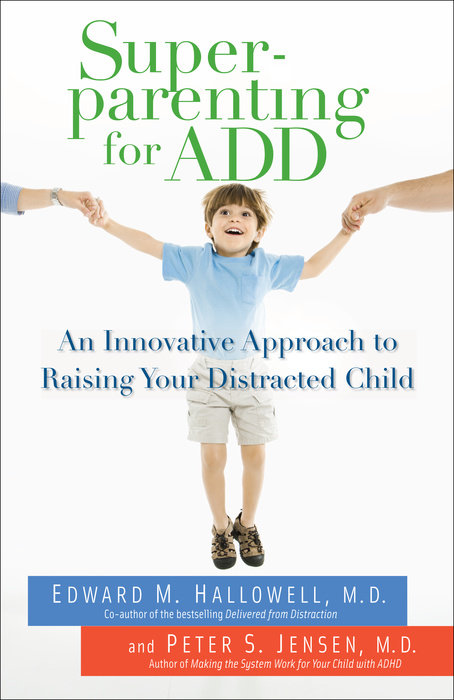Sometimes it feels like the world wasn’t designed for sensitive people. Here are ways to take care of yourself.
YOU MIGHT ALSO LIKE
CLEAR ALL
BY TEACHER
BY TYPE
FILTER

TOPIC
- Relationship Challenges (36)
- Child’s Autism (34)
- Child’s ADD/ADHD (32)
- Parenting (31)
- Romantic Relationships (31)
- Young Adult Well-Being (31)
- Belonging (27)
- Learning Styles (27)
- Self-Discovery (27)
- Communication Skills (25)
- Children’s Well-Being (23)
- Synesthesia (21)
- Anxiety (18)
- Emotional and Mental Health (18)
- Connection (16)
- Friendship (16)
- Growth Mindset (15)
- Family Dynamics (14)
- Imagination and Creativity (14)
- Relationship with Time (14)
- Self-Development (14)
- LGBTQIA Well-Being (13)
- Living as an Empath (12)
- Marriage (11)
- Neuroscience (11)
- Cognitive Psychology (10)
- Self-Reliance (10)
- Social Presence (10)
- Disabled Well-Being (9)
- Social Anxiety (9)
- Depression (8)
- Racial Identity (8)
- Self-Acceptance (8)
- Self-Esteem (8)
- Work Challenges (8)
- Access to Education (7)
- BIPOC Well-Being (7)
- Child’s Emotional Growth (7)
- Collaboration (7)
- Decision Making (7)
- Habits of Mind (7)
- Identity Shifts (7)
- Offering Support to Others (7)
- Productivity (7)
- Women’s Well-Being (7)
- Athlete Well-Being (6)
- Authenticity (6)
- Child’s Challenging Behavior (6)
- Confidence (6)
- Creative Well-Being (6)
- Gender Identity (6)
- Intimacy (6)
- Memoir (6)
- Problem Solving (6)
- Self-Care (6)
- Transgender Well-Being (6)
- Empathy (5)
- Focus (5)
- Memory (5)
- Perception (5)
- Philosophical Approaches (5)
- Self-Actualization (5)
- Social Justice (5)
- Work Relationships (5)
- Black Well-Being (4)
- Cross-Cultural Dynamics (4)
- Emotional Intelligence (EQ) (4)
- Latinx Well-Being (4)
- Motivation (4)
- Narcissism (4)
- Neuropsychology (4)
- Self-Realization (4)
- Setting Limits and Boundaries (4)
- Trauma Healing (4)
- Acceptance (3)
- Activism/Service (3)
- Animal Connection (3)
- Caregiver Well-Being (3)
- Challenges with Teens (3)
- Cognitive Behavioral Therapy (3)
- Consciousness (3)
- Criticism and Rejection (3)
- Entrepreneurship (3)
- Fiction (3)
- Immigration and Assimilation (3)
- LGBTQIA Sexuality (3)
- Men’s Well-Being (3)
- OCD (3)
- Psychology (3)
- Racism (3)
- Resilience (3)
- Self-Discipline (3)
- Self-Mastery (3)
- Self-Worth (3)
- Shame (3)
- Stress Management (3)
- Transitions (3)
- AAPI Well-Being (2)
- Addiction (2)
- Animal Communication (2)
- Body Image (2)
- Brain Health (2)
- Burnout (2)
- Child’s Anxiety (2)
- Discrimination (2)
- Family Acceptance (2)
- Female Friendship (2)
- Honoring Emotion (2)
- Human Potential (2)
- Inner Life (2)
- Leadership (2)
- Life Challenges (2)
- Loneliness (2)
- Manifestation (2)
- Mental Health Challenges (2)
- Mindfulness (2)
- Motherhood (2)
- Negative Self-Talk (2)
- New Relationships (2)
- Nonbinary Well-Being (2)
- Oneness (2)
- Race and Gender (2)
- Racial Discrimination (2)
- Science and Spirituality (2)
- Search for Purpose (2)
- Self-Control (2)
- Self-Expression (2)
- Self-Love (2)
- Self-Pressure (2)
- Sex (2)
- Social Psychology (2)
- Social Responsibility (2)
- Speaking Your Truth (2)
- Spiritual Awakening (2)
- Time Management (2)
- Visualization (2)
- Work Ethic (2)
- Academic Struggles (1)
- Adaptability (1)
- Affirmations (1)
- Anger (1)
- Anger Management (1)
- Animal Welfare (1)
- Attachment Theory (1)
- Awareness (1)
- Body Positivity (1)
- Buddhism (1)
- Cancer (1)
- Child’s Trauma (1)
- Chronic Anxiety (1)
- Codependency (1)
- Cognition (1)
- Coming Out (1)
- Community Healing (1)
- Compassion Fatigue (1)
- Death and Dying (1)
- Disconnection (1)
- Divorce and Breakup (1)
- Dysfunctional Childhood (1)
- Ecospirituality (1)
- Ego (1)
- Ego Dissolution (1)
- Embodiment (1)
- Empowerment (1)
- Endurance (1)
- Facing Own Death (1)
- Failure (1)
- Fatherhood (1)
- Finding Meaning (1)
- Following Bliss (1)
- Gaming Addiction (1)
- Generational Healing (1)
- Genetics (1)
- Global Challenges (1)
- Grit (1)
- Habit Formation (1)
- Handling a Child’s Illness (1)
- Healing Approaches (1)
- Homophobia (1)
- Inner Peace (1)
- Inner Strengths (1)
- Inspiration (1)
- Intention (1)
- Interdependence (1)
- Intergenerational Trauma (1)
- Intuition (1)
- Judaism (1)
- Kindness (1)
- Letting Go (1)
- LGBTQIA Parents (1)
- LGBTQIA Relationships (1)
- Love (1)
- Meditation (1)
- Mindfulness Practices (1)
- Misophonia (1)
- Moral Philosophy (1)
- Near-Death Experience (1)
- Panic Attacks (1)
- Past Lives and Reincarnation (1)
- Performance Pressure (1)
- Personal Development (1)
- Positive Thinking (1)
- Post-Traumatic Growth (1)
- Presence (1)
- PTSD (1)
- Racial Justice (1)
- Raising Nonbinary Children (1)
- Rest (1)
- Self-Compassion (1)
- Self-Harm (1)
- Self-Reflection Practices (1)
- Sexual Assault or Abuse (1)
- Sexuality (1)
- Shared-Death Experience (1)
- Sleep Disorders (1)
- Spiritual Life (1)
- Stress (1)
- Talk Therapy (1)
- Tibetan Buddhism (1)
- Toxic Relationships (1)
- Vulnerability (1)
- Wake-Up Calls (1)
- Well-Being (1)
- Work-Life Balance (1)
FILTER

TEACHER
- John Perry (3)
- Alan Watts (2)
- Gabor Maté (2)
- Judith Orloff (2)
- Terri Cole (2)
- Alanis Morissette (1)
- angel Kyodo williams (1)
- Brendon Burchard (1)
- Daniel J. Benor (1)
- David J. Wolpe (1)
- Eckhart Tolle (1)
- Gangaji (1)
- Jay Shetty (1)
- John Bradshaw (1)
- Judith Blackstone (1)
- Michael Phelps (1)
- Oliver Sacks (1)
- Simone Biles (1)
- Yongey Mingyur Rinpoche (1)





